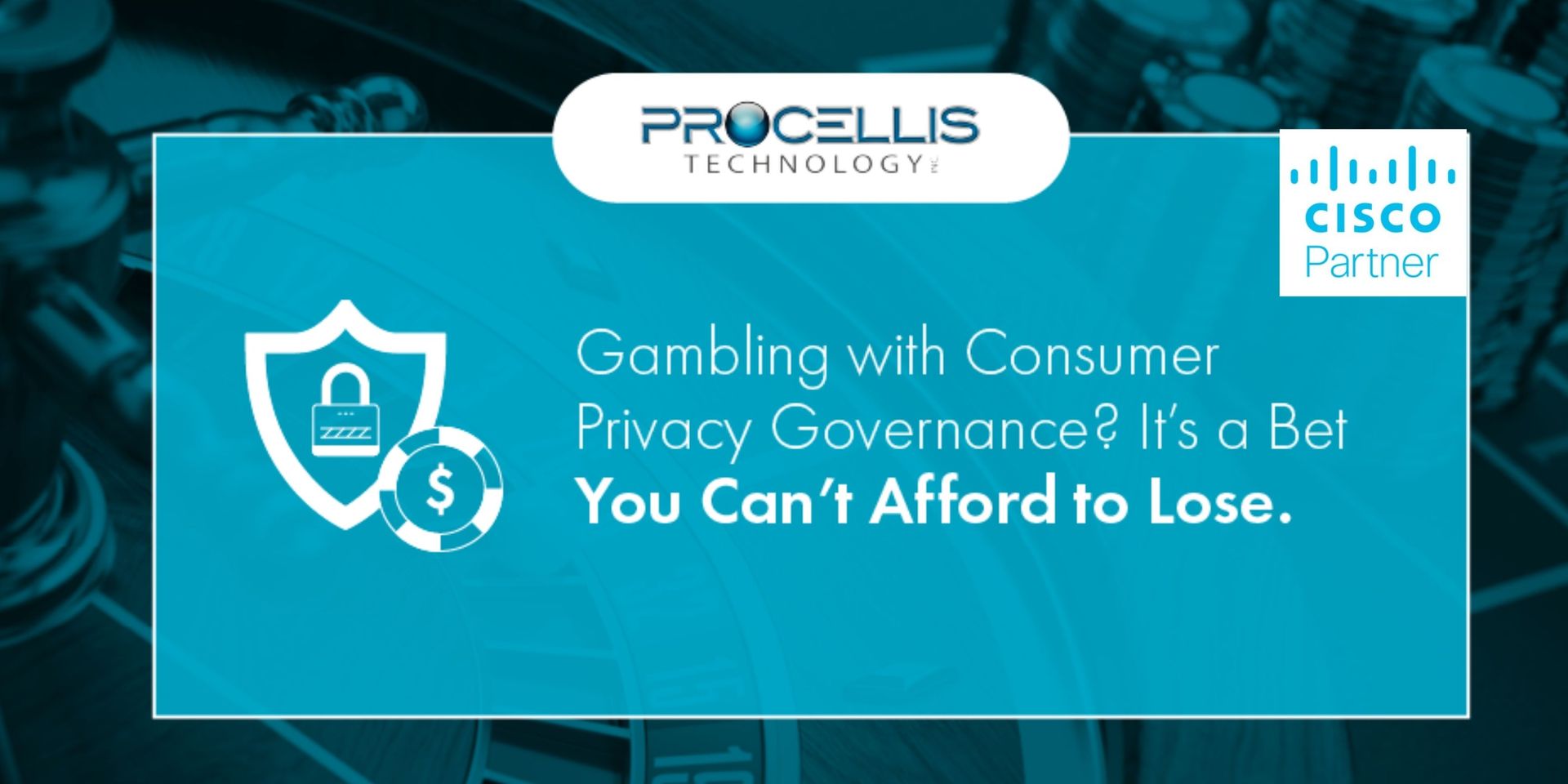Data Privacy governance is a big deal these days. New legislation coming out across multiple states, every business that collects customer information needs to pay attention.

Consumer/customer privacy seems to make headlines on weekly basis. For instance, sports betting firm, DraftKings hit the news cycle with a breach that compromised 68,000 users’ sensitive information and allowed attackers to withdraw more than $300,000 from some of those accounts.
High-profile organizations in all industries have failed to protect consumer data, drawing greater attention to shortcomings in personal data protection. Most of these events included steep government fines, forced resignations of corporate officers, a decline in consumer confidence, and dramatic drops in stock prices.
More importantly consumers felt the pain of these breaches as victims of identity theft, financial fraud, personal safety, and other malicious attacks. The price tag on all this anguish is millions of dollars per year.
State by state
As the internet continues to evolve, not only as a medium of commerce but also as a tool for collecting and managing sensitive data, consumer data privacy is a growing concern.
Despite this, there is currently no comprehensive legal standard for data privacy at the federal level in the U.S. It’s up to states to take measures. The California Consumer Privacy Act (CCPA) is the most referenced law in regard to consumer security. In January 2023, additional regulations are being put in place with the California Privacy Rights Act (CPRA).
In addition to California, 5 other states have laws in place to protect their state’s consumers—Colorado, Virginia, Maine, Tennessee, and Nevada. Most other states have introduced legislation that will go into effect in the near future. Only 9 states—Oregon, Idaho, North Dakota, South Dakota, Iowa, Kansas, Arkansas, Louisiana, and Georgia—currently have no plans in place to enact privacy laws, however experts predict they’ll get on the bandwagon soon.
By contrast, the European Union passed the General Data Protection Regulation (GDPR) in 2018 which unified data privacy laws across the EU. This law also has a significant effect on nations outside of Europe—including the U.S. —because multinational corporations that serve EU citizens must comply with these regulations. Failure to do so can incur financial penalties. Just ask Google which was fined $57 million in 2019 for failing to adhere to transparency and consent rules.
Sensitive to them and to you
So, what exactly do these regulations mean by “sensitive information?” It includes a consumer’s:
- Social security, driver’s license, state identification card, or passport number
- Account log-in, financial account, debit card, or credit card number in combination with any required security or access code, password, or credentials allowing access to an account
- Precise geolocation
- Racial or ethnic origin, religious or philosophical beliefs, or union membership
- Mail, email, and text messages, unless the business is the intended recipient of the communication
- Genetic data
As you can see this list is pretty extensive. With the increase in regulations, all businesses, like yours, need to have the right precautions in place. Unfortunately, this can be a full-time job for multiple people. And without the right experience and systems in place, you could be leaving not only your customers’ data vulnerable, but your business’s viability as well.
When it comes to effective customer privacy protection, it’s not just the cybercriminals you have to worry about. You also need to have:
- Robust privacy policies with automated systems of governance in place to manage sensitive information.
- Procedures in place to respond to customer requests.
- Procedures to ensure that any information shared or sold to third parties is also deleted by those parties.
- Compliance documentation systems to show evidence of compliance for your business as well as the compliance of third parties with whom information was shared.
All of these precautions will help protect your organization against legal action that can be brought forth by not only your state, but other involved states, as well as global customers.
Privacy as Code
To ensure your compliance with a host of requirements, Procellis’s Compliance and Development teams work with you to identify applicable laws that affect your business, and create procedures for consumer requests, third-party information tracking, and request compliance, to integrate and automate enforcement of your compliance with consumer privacy governance requirements.
Utilizing a Privacy as Code methodology, we enable you to:
- Automate data mapping as systems evolve, to quickly discover, classify, and visualize your entire data ecosystem in real-time.
- Program data subject requests, to customize and automate workflows in order to comply with emerging laws and policies.
- Protect users with privacy checks as code, to ensure continuous compliance with product releases or digital infrastructure upgrades.
- Automate requests, to securely respond to customer requests for disclosure or deletion of data by creating customized rules and workflows.
- Document everything in real time, to ensure the privacy of your customers and protect your business from legal action from both governing entities and private citizens.
Schedule a consultation with one of our compliance experts today to learn more about why Procellis is your sure thing to automating consumer privacy governance.
You Might Also Like...
6820 Shingle Creek Parkway Suite 2 | Minneapolis, MN 55430






